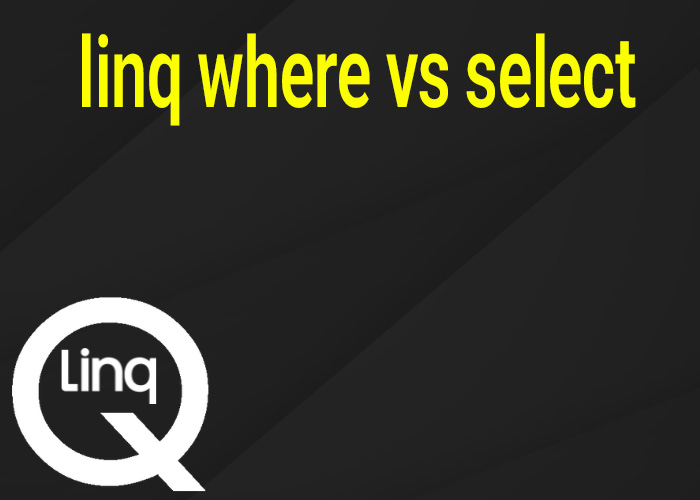Understanding the Differences Between LINQ Where and Select in C#
In C#, LINQ (Language Integrated Query) provides various methods that make data querying and manipulation straightforward and efficient. Two of the most frequently used methods are Where and Select. While they might seem similar at first glance, they serve very different purposes. This article will explore these differences with examples to help you understand when to use each method.
What is the Where Method?
The Where method is used to filter a sequence, returning an IEnumerable containing only those elements that meet a specified condition. It's essentially used to narrow down the list based on a predicate.
Example of Where:
List<int> numbers = new List<int> { 1, 2, 3, 4, 5, 6 };
IEnumerable<int> evenNumbers = numbers.Where(n => n % 2 == 0);
foreach (int num in evenNumbers)
{
Console.WriteLine(num); // Output: 2, 4, 6
}
In this example, Where filters out the even numbers from the list.
What is the Select Method?
On the other hand, the Select method is used for projection. It transforms each element of a sequence into a new form based on a provided function, which is not necessarily a filter.
Example of Select:
IEnumerable<int> doubledNumbers = numbers.Select(n => n * 2);
foreach (int num in doubledNumbers)
{
Console.WriteLine(num); // Output: 2, 4, 6, 8, 10, 12
}
Here, Select is used to double the value of each element in the original list.
Key Differences
Purpose:
- Where: Filters a sequence based on a condition. Returns elements that satisfy the condition.
- Select: Projects each element of a sequence into a new form. It’s used for transforming the elements.
Return Value:
- Both methods return IEnumerable<T>, but Where returns elements of the original type, while Select can return elements of any type, depending on the projection function.
Usage Scenarios:
- Use Where when you need to extract elements based on a condition.
- Use Select when you need to transform elements into a new form or extract values from complex objects.
Combining Where and Select
Often, Where and Select are used together to first filter a sequence and then transform the filtered results.
Example of Combining Both:
List<Person> people = new List<Person>
{
new Person { Name = "Alice", Age = 25 },
new Person { Name = "Bob", Age = 30 },
new Person { Name = "Charlie", Age = 35 }
};
var namesOfPeopleOver30 = people.Where(p => p.Age > 30)
.Select(p => p.Name);
foreach (var name in namesOfPeopleOver30)
{
Console.WriteLine(name); // Output: Charlie
}
In this combined example, Where is used to filter the list to find people over 30, and Select is then used to extract their names.
Conclusion
Understanding the distinctions between Where and Select is crucial for effective data manipulation in C#. Where is your go-to for filtering, while Select is ideal for transforming data. Mastering these methods will enhance your ability to work with collections in C#, making your code more efficient and readable.





